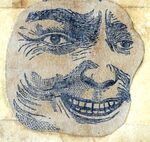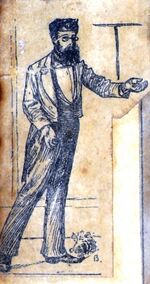HPB-SB-8-34: Difference between revisions
mNo edit summary |
mNo edit summary |
||
| (One intermediate revision by the same user not shown) | |||
| Line 7: | Line 7: | ||
{{Style P-HPB SB. Title continued|Professor Zollner's Experiments With Ddr. Slade|8-33}} | {{Style P-HPB SB. Title continued|Professor Zollner's Experiments With Ddr. Slade|8-33}} | ||
{{Style P-No indent|Professor Zollner concludes with some remarks on the necessity of complete passivity on the part of the observer as regards the conditions under which these manifestations occur, and points out that their unexpected variety, and the fact that the same things are not repeated at will, even when most desired by the sitters, are additional arguments why Slade cannot be credited with doing them himself, since a conjuror has always the greatest success with of repeated tricks. The same rule holds good as in all other scientific work. The impartial and cool observer, who continues patiently watching the operations of nature, is more likely to be rewarded than he who disturbs them by trying to impose his own conditions. As Goethe says:—}} | |||
{{Style P-Poem|poem=‘Mysteriously in garish day, | |||
Does Nature hide herself, her beauty veiling, | |||
And when she wills not secrets to betray, | |||
Nor screws nor levers will be found availing.’”}} | |||
{{HPB-SB-item | {{HPB-SB-item | ||
Latest revision as of 07:27, 10 July 2024

Legend
< Professor Zollner's Experiments With Ddr. Slade (continued from page 8-33) >
Professor Zollner concludes with some remarks on the necessity of complete passivity on the part of the observer as regards the conditions under which these manifestations occur, and points out that their unexpected variety, and the fact that the same things are not repeated at will, even when most desired by the sitters, are additional arguments why Slade cannot be credited with doing them himself, since a conjuror has always the greatest success with of repeated tricks. The same rule holds good as in all other scientific work. The impartial and cool observer, who continues patiently watching the operations of nature, is more likely to be rewarded than he who disturbs them by trying to impose his own conditions. As Goethe says:—
‘Mysteriously in garish day, |

Baltimore Underweriter
...

Hierophant Olcott Makes an Explanation
...
A Mission Against Christianity
...

Editor's notes
